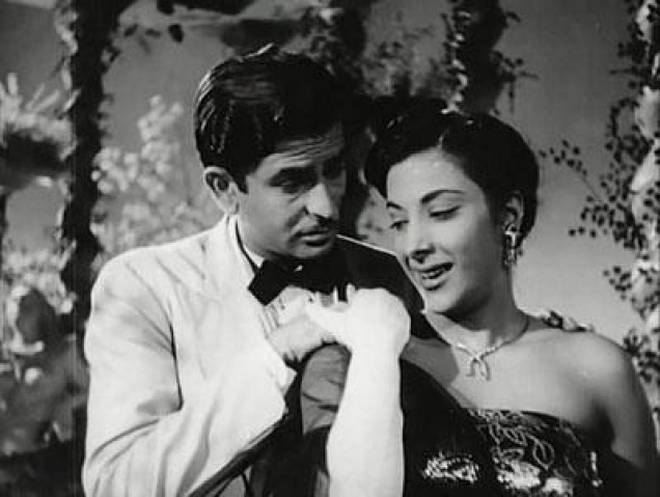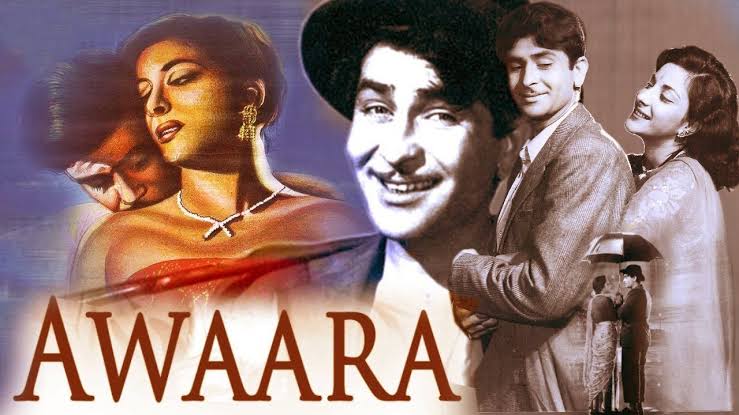Recently, the Chief Justice of India rued the absence of sufficient women in the judiciary and argued that there should be a significant reservation of seats for girls in law schools. While many applauded his suggestion, those against reservations felt women should make it on their own steam.
Against this background, re-visiting Raj Kapoor’s film, Awara, is interesting. Made 70 years ago, this K A Abbas and V P Sathe written film can still be held up as a model for women empowerment through education.
Nargis, who was given superior billing to Raj Kapoor in the credits, makes an impressive entry in the opening scene, walking confidently into a courtroom, dominated by men. Wearing the black cloak of a lawyer, she defends her childhood friend, Raj, who took to crime after being thrown out of school.
Nargis plays Rita, the ward of Justice Raghunath, a principled judge blinded by his theory that the son of a criminal will, inevitably, be a criminal because of the bad blood running in his veins. In the opening scene, Raghunath, portrayed by a dapper Prithviraj Kapoor, is present as a victim of Raj’s violent, physical attack.

Rita has chosen to defend Raj against the very man who has educated her and enabled her to become a lawyer. Not an enviable task, but she takes Raghunath back in time, to expose his patriarchal mind-set, when like the virtuous Ram, he had buckled under societal pressure to turn his pregnant wife out of the house because she had been kidnapped by Jagga Daku and spent four days in his house. Jagga had kidnapped Leela to settle scores with Justice Raghunath who had once judged him, unfairly, by the crimes of his father.
Raghunath’s wife, played by Leela Chitnis, gives birth to a son whom she brings up in a slum, in the most trying circumstances. Seeing his mother slogging all day, the eight-year-old Raj, played by an endearing young Shashi Kapoor, polishes shoes to pay his school fees; but is taken off the rolls due to delayed payment. In a heart-wrenching scene, the clean-scrubbed boy holds out the crumpled notes he has earned, but the school will have none of it.
Made just four years after the country became free, Awara makes a strong case for education, showing how children growing up in bastis, without going to school, become fodder for crime lords. When Jagga Daku, played by an evil-looking K.N. Singh, in a very Dickensian scene, towers over a crouching Raj, mocking his pleas for an honest job, your heart beats for the child. Is it any different today? Only in that, the needy youngsters, today, may be indoctrinated for far worse crimes than in 1951.
Suffused with irony, Awara has powerful dialogues, written by the leftist Abbas, critiquing class snobbery and juxtaposing the haves with the have-nots. When Raj laughs at the chapati on his plate in prison, the jailor is flummoxed. “If I had received this chapati, 12 years ago, outside prison, I would never have been here,” Raj points out, bitterly.
The film also exposes the crimes committed by the affluent that go undetected. When Raj tells Rita he is a thief, she replies, “Then you must be working in a bank or the stock market!” The sharp, pithy dialogues struck a chord with the audience, not just in a struggling new nation like India, but even in countries like the USSR and Turkey.
Preventing the film from becoming a preachy propaganda of leftist philosophy are Shanker and Jaikishan’s musical compositions, which helped viewers escape to a melodious world, far removed from long lines at ration shops. Whether it is the nimble-footed Awara hoon lifting the gloom from lives ridden with shortages, or the romantic Dum bhar jo udhar munh phere, woh chanda setting the screen on fire with its sheer passion, some of the songs in the film can still transport you to a happier space, even as the film’s message strikes home with current relevance. If quality education could be made accessible across class, caste and gender lines there would be no need for divisive reservations. Our early planners didn’t ensure this. Can those in power now work towards it?














Awara and indeed many of Raj Kapoor’s films are time proof. The stories may be predictable, and they may, so to speak, wear their ideology on their sleeves. No matter, they are relevant today, and you still enjoy them. A wonderful film, a perceptive review.
More of the same, please.